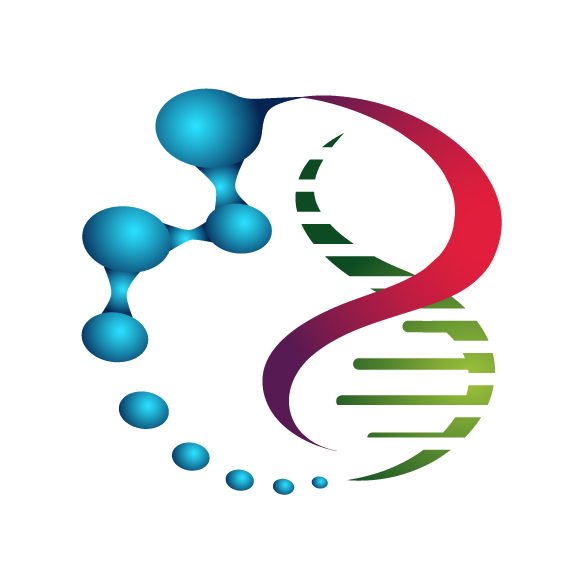预约演示
更新于:2025-09-04
Cabotamig
更新于:2025-09-04
概要
基本信息
原研机构 |
在研机构 |
非在研机构- |
权益机构- |
最高研发阶段临床1期 |
首次获批日期- |
最高研发阶段(中国)- |
特殊审评- |
登录后查看时间轴
结构/序列
Sequence Code 1177466664

来源: *****
Sequence Code 1177466665

来源: *****
关联
1
项与 Cabotamig 相关的临床试验NCT05411133
A Phase 1, First-in-human Study of Cabotamig (ARB202), Bispecific Antibody to CDH17 and CD3 in Advanced Gastrointestinal Malignancies
This study aims to find out:
1. The tolerability of Cabotamig (ARB202) in adults with advanced solid gastrointestinal tumors who failed the standard treatment. People can participate if their tumor has the CDH17 marker.
2. To find out how study drug is broken down in the body
3. To know the effects of the study drug on the tumor.
1. The tolerability of Cabotamig (ARB202) in adults with advanced solid gastrointestinal tumors who failed the standard treatment. People can participate if their tumor has the CDH17 marker.
2. To find out how study drug is broken down in the body
3. To know the effects of the study drug on the tumor.
开始日期2022-05-30 |
申办/合作机构 |
100 项与 Cabotamig 相关的临床结果
登录后查看更多信息
100 项与 Cabotamig 相关的转化医学
登录后查看更多信息
100 项与 Cabotamig 相关的专利(医药)
登录后查看更多信息
17
项与 Cabotamig 相关的新闻(医药)2025-01-06
·药研网
导语
2024年8月23日,普众发现1类新药注射用AMT-676在国内获得临床试验默示许可,用于治疗晚期实体瘤。据公开资料,AMT-676是普众发现研发的一款CDH17靶向抗体偶联药物(ADC),其针对晚期实体瘤的1期临床研究已在澳大利亚启动。在肿瘤组织中,CDH17在胃、胰腺、肝、食道、胆管癌和结直肠癌中过表达,被认为是消化道肿瘤药物研发的潜力靶点。
关于CDH17
钙粘素(cadherin, 钙粘蛋白,钙粘合素)是一类依赖于Ca2+的细胞粘附分子的超家族,它在维持组织结构和形态中发挥着关键作用。
Cadherin的表达失调往往与疾病有关,包括组织发育不良、肿瘤形成和转移。典型Cadherin胞外域由5个重复序列构成;胞内域由150-160个氨基酸组成,高度保守。
CDH17(Cadherin 17,LI-cadherin),也称为肝肠钙粘蛋白,是钙依赖性蛋白质CDH超家族的非经典成员。CDH17序列由七个细胞外钙粘蛋白结构域和一个非常短的细胞质结构域形成。与其他经典的钙粘蛋白不同,CDH17是一种钙依赖性跨膜糖蛋白,可介导细胞在肠上皮中的细胞粘附。
图1.钙粘蛋白-17 (CDH17) 的结构特征
(即在细胞外氨基末端 (NH2) 具有 7 个钙粘蛋白重复序列(EC1-EC7),随后是跨膜区和羧基处的短胞质结构域-终点(COOH)。钙离子(用红点表示)位于哺乳动物 CDH17 的钙粘蛋白重复序列之间)
CDH17的生物学功能与表达
CDH17主要在肠上皮细胞及部分胰腺导管上皮细胞中表达,健康成人的肝细胞、食管和胃黏膜中几乎不表达。其主要功能是通过介导钙依赖性粘附在细胞间保持结构和形态的完整性。研究表明,CDH17在胃癌、结直肠癌、肝癌、胰腺癌和胆管癌等多种肿瘤中均有高表达,且其表达水平与患者的预后和治疗反应密切相关。
CDH17与肿瘤发展的关系
CDH17的功能紊乱与肿瘤细胞的浸润和转移密切相关。
在胃癌中,CDH17的上调可通过激活NF-κB和促进MAPK信号通路来促进癌细胞的增殖和侵袭。同时,其在肝癌中的expression与Wnt/β-catenin信号通路的激活相联系,提示其可能在肝细胞癌的进展中发挥作用。
此外,CDH17也被证明能与α2β1整合素相互作用,并且是α2β1整合素活性调控细胞粘附和增殖的关键决定因素,以及能促进结肠直肠癌细胞获得肝转移的能力。
CDH17在肿瘤中的作用机制以及在癌症治疗中的具体作用虽然尚未清楚,但已经有新型靶向治疗药物(如BI 905711和ARB102等)处于临床研究阶段,用于治疗胃癌、胰腺癌、食管癌、胆管癌等胃肠道癌。这些药物可同时结合肿瘤细胞表面的CDH17和死亡受体TRAILR2,诱导肿瘤细胞凋亡,对表达CDH17的正常细胞无损伤。
吉满生物根据市场需求和研究现状,推出CDH17稳定表达细胞系/抗体/蛋白相关产品及服务(详细数据见文末),可用于抗体筛选、表征、一致性评价, 充分满足药物研发的需求,助力抗体药物临床申报。(咨询吉满客服联系同微信:18916119826)
目前在研格局
相较于其他靶点,CDH17靶点进展较慢,在研药物大多处于临床早期阶段,但CDH17靶向药类型比较丰富,涵盖单抗/双抗、ADC、细胞疗法等,尚未有相关产品获批。
1
ARB202
ARB202是利用TriAx技术构建的一种人源化抗CDH17xCD3的IgG4双抗, 是一款潜在“同类首创”药物,其具备独特亲和力抗 CDH17 和抗 CD3 差异化的结构,在保证高特异性和高杀伤活性的同时,避免过度激活T细胞所引起的全身免疫反应风险。
Arbele的TriAx抗体设计是为了通过结合多种抗肿瘤机制在消化道癌症治疗中获得更大的疗效,具有低抗原性、稳定性、理想的生物分布和药代动力学特性。纳入TriAx抗体的抗肿瘤机制包括重新引导T/NK细胞的细胞毒性,抑制免疫检查点,吞噬作用和增强适应性免疫反应。
临床前数据显示:ARB202能有效增强T细胞与表达CDH17的胃肠道肿瘤细胞系之间的相互作用,从而导致T细胞的活化并释放IL-2,有效的产生肿瘤细胞杀伤,通过体内注射低剂量ARB202 抗体可以有效地抑制肿瘤的生长。1a期研究的初步数据显示:ARB 202在血液循环中的耐受性Cmax高达150ng/ml,这表明在这些浓度下没有临床显著的脱靶T细胞活化。
2
BI-905711
BI905711是勃林格殷格翰公司首创的双特异性、四价治疗性抗体,靶向TRAILR2和CDH17的四价双抗,TRAILR2与CDH17交联诱导CDH17依赖性TRAILR2聚集,在共表达TRAILR2和CDH17的肿瘤细胞中诱导选择性凋亡。
BI 905711已推进至首次人体临床试验。在一项针对晚期胃肠道癌症患者的Ia/b 期研究中,48 名患者接受了BI 905711治疗,13 名患者病情稳定 (SD),8 名患者无进展生存期≥4 个月 (PFS4)。CRC 患者中,6 名患者病情稳定,3 名患者无进展生存期为 4 个月;非CRC 患者中,7 名患者病情稳定 (PDAC:n = 6),5 名患者无进展生存期为4 个月 (PDAC:n = 4)。未观察到 DLT 且未达到 MTD。
3
CHM-2101
CHM 2101 (CDH17 CAR T)是世界知名的宾夕法尼亚大学细胞治疗中心发明的同类首创第三代 CDH17 CAR T,具有CD28和4-1BB共刺激结构域。CHM 2101的临床前证据于2022年3月发表在《Nature Cancer》杂志上,证明在7种癌症中完全根除肿瘤。
CDH17 CAR-T细胞仅浸润肿瘤细胞,尽管正常细胞表达CDH17也不受影响。在正常细胞中,CDH17隐藏在正常细胞屏障的紧密连接之下;而在癌症中,CDH17上调导致其暴露在癌细胞膜上,允许CAR-T检测并结合它。
目前针对晚期结直肠癌、胃癌和神经内分泌肿瘤患者正在开展一项多中心、开放标签1A/B期临床试验。临床前证据表明,CHM-2101具有完全根除肿瘤细胞而不复发的实体肿瘤的独特效力,并对正常组织没有毒性。
4
AMT-676
2024年8月23日,普众发现1类新药注射用AMT-676在国内获得临床试验默示许可,用于治疗晚期实体瘤。据公开资料,AMT-676是普众发现研发的一款CDH17靶向抗体偶联药物(ADC),其针对晚期实体瘤的1期临床研究已在澳大利亚启动。
总结
CDH17作为一个新兴的肿瘤靶点,具有良好的肿瘤特异性及较低的毒性风险,其药物市场未来展望相当广阔,有望在不久的将来为癌症患者带来新的治疗选择和希望。
对此,吉满生物自主设计并开发了一系列稳定表达CDH17细胞系以及一系列高特异性、高灵敏性CDH17(Cadherin 17)单克隆抗体,可用于ELISA,WB,IP,IF,IHC,FCM。除此之外,吉满生物还可提供高活性CDH17重组蛋白,涵盖多种不同的功能Domain以及多个种属的蛋白产品,可满足客户在动物免疫、抗体筛选以及表位鉴定等不同场景中的需求,所有产品均已通过严格的质量监测。
产品列表
数据展示
GM-C25980
H_CDH17 CHO-K1 Cell Line使用Anti-CDH17 hIgG1 Antibody流式验证结果
GM-C25981
H_CDH17 HEK-293 Cell Line使用Anti-CDH17 hIgG1 Antibody流式验证结果
GM-C25982
Cynomolgus_CDH17 HEK-293 Cell Line使用Anti-CDH17 hIgG1 Antibody流式验证结果
GM-C26466
Mouse_CDH17 HEK-293 Cell Line使用Anti-CDH17 hIgG1 Antibody(VHHl-28BB)流式验证结果
GM-C26465
Rat_CDH17 HEK-293 Cell Line使用Anti-CDH17 hIgG1 Antibody (VHHl-28BB)流式验证结果
联系我们
吉满生物助力药物研发,紧随前沿靶点资讯,储备几百株现货细胞,覆盖GPCR、细胞因子、免疫检查点、TAA等多领域,截止当前已布局近300个热门靶向药靶点,1000余株细胞系,旨在助力、加速大分子早期研发,做到进口细胞的国产替代。同时可根据客户需求提供细胞系服务。
扫码咨询
扫码找现货
抗体药物偶联物临床1期
2024-09-02
关注并星标CPHI制药在线
近日,普众发现医药科技(上海)有限公司1类新药「注射用AMT-676 」在国内获得临床试验默示许可,用于治疗晚期实体瘤。据公开资料,AMT-676是普众发现研发的一款CDH17靶向抗体偶联药物(ADC),其针对晚期实体瘤的1期临床研究已在澳大利亚启动。
普众发现是一家专注于ADC药物开发的临床阶段公司,拥有MabArray、T-Moiety两大技术平台,其中MabArray技术平台用于发现新颖的细胞表面抗肿瘤靶点以构建First-in-Class靶标,其可以实现传统方法无法完成高分辨率抗原筛选,并识别高难度抗原如多次跨膜,特殊构象,糖蛋白等,一次性覆盖人类细胞表面膜蛋白(潜在药靶)~50%,推动细胞表面抗原识别抵达新境界。T-Moiety是一种高亲水性自裂解连接子修饰技术,用于开发ADC的新型Linker。T-Moiety连接子具有更优的“疏水屏蔽效应”与稳定性,可以大幅度提高ADC治疗效果,以及延长药物作用时间,且能够克服多重肿瘤耐药性,不增加毒副作用。
基于上述技术平台,普众发现已开发出多款创新ADC,如靶向FRα的AMT-151、靶向MUC18的AMT-253、靶向HER3的AMT-562、靶向CDH6的AMT-707/CUSP06、靶向CD44v9的AMT-116、靶向TF的AMT-754。
值得一提的是,普众发现对外达成两次授权:2022年6月,将AMT-707在大中华区以外的全球开发和商业化权利独家授权给昂阔医药;2024年8月,将AMT-754在大中华区以外的全球开发和商业化权利独家授权给Adcendo。
关于CDH17
CDH17,即钙黏蛋白17,最早于1994年由Dietmar等通过分子克隆技术从鼠肝细胞cDNA文库中分析得到,由于在小鼠仅表达于肝脏和小肠,故命名为肝肠钙黏蛋白。
人CDH17基因位于染色体8q22. 1,其结构与钙黏蛋白家族成员具有同源性,但又有其独特性:CDH17的胞外部分含有7个钙黏蛋白重复区域,而经典钙黏蛋白和桥粒钙黏蛋白为5个;CDH17氨基末端的细胞黏附识别区,决定细胞黏附特性的HAV序列由AAL序列代替;CDH17细胞质尾仅含有20个氨基酸残基,经典钙黏蛋白有150-160个。
CDH17作为多肽转运器和细胞粘附分子来维持上皮组织的完整性,但与经典钙粘蛋白的粘附机制不同,CDH17在不与其他细胞质成分相互作用的情况下仍能保持其粘合功能,而经典钙粘蛋白需要与α和β-钙粘蛋白复合。
CDH17主要表达于胚胎、成人肠上皮细胞和部分胰腺导管上皮细胞,在健康人群肝细胞、食管上皮细胞及胃黏膜中几乎不表达。在肿瘤组织中,CDH17在胃、胰腺、肝、食道、胆管癌和结直肠癌中过表达。研究发现,CDH17在不同肿瘤组织中的表达程度不同,而且其表达水平与患者预后和风险评估密切相关。
目前,CDH17在肿瘤中的作用机制还未完全阐明。研究发现:在在胃癌中,CDH17通过激活NF-κB 信号通路,诱导胃癌的发生和淋巴结转移;在结直肠癌组织中,CDH17处于低表达状态,使得肿瘤发生及进展时肿瘤细胞间的黏附减弱,导致结直肠癌细胞浸润和转移;在肝癌中,CDH17 mRNA过表达与肝癌的发生及侵袭密切相关,应用RNA干扰技术使CDH17基因沉默,发现Wnt/β-catenin信号通路失活,肿瘤生长受到抑制。
CDH17靶向药进展
CDH17被认为是消化道肿瘤药物研发的潜力靶点,目前全球药企针对该靶点已开发出多款新药,如ARB-101、ARB-102、ARB-202、ARB-001、BI-905711、CHM-2101、CHM-2301、TORL-3-600。其中ARB-101和ARB-102是Abele开发的CDH17靶向单抗。
ARB202是Abele开发的一款CDH17/CD3靶向双抗,其对CDH17和CD3独特的差异结合亲和力使其具有高特异性和细胞毒性,同时避免了T细胞的“脱靶”过度激活。
临床前数据显示:ARB202能有效增强T细胞与表达CDH17的胃肠道肿瘤细胞系之间的相互作用,从而导致T细胞的活化并释放IL-2,有效的产生肿瘤细胞杀伤,通过体内注射低剂量ARB202 抗体可以有效地抑制肿瘤的生长。
1a期研究的初步数据显示:ARB 202在血液循环中的耐受性Cmax高达150ng/ml,这表明在这些浓度下没有临床显著的脱靶T细胞活化。
BI905711是勃林格殷格翰开发的双特异性、四价治疗性抗体,可同时靶向促凋亡肿瘤坏死因子相关凋亡诱导配体受体2(TRAILR2)和CDH17。TRAILR2与CDH17交联诱导CDH17依赖性TRAILR2聚集,在共表达TRAILR2和CDH17的肿瘤细胞中诱导激活选择性凋亡。
临床前研究显示:BI 905711在体外可诱导CDH17阳性肿瘤细胞凋亡,抑制pt来源的结直肠癌(CRC)异种移植物中的肿瘤生长,并且未观察到肝毒性。
CHM-2101是Chimeric Therapeutics开发一款第三代 CDH17靶向CAR-T疗法,具有CD28和4-1BB共刺激结构域。临床前研究显示:CHM-2101能够根除七种癌症模型中已形成的肿瘤,并且对正常组织没有毒性。
CHM-2301是Chimeric Therapeutics开发的一款CDH17靶向CAR-NK疗法,目前处于临床前研究阶段。
TORL-3-600是TORL BioTherapeutic开发的一款新型CDH17靶向ADC。临床前研究表明,TORL-3-600在CDH17阳性人结直肠癌模型中能诱导显著消退和肿瘤生长抑制,而且这些模型的反应在停止治疗后可持续长达九周。此外,本研究中测试的每种剂量在小鼠中均具有良好的耐受性,未观察到剂量限制性毒性。
总结
作为消化道肿瘤药物研发的潜力靶点,相较Claudin 18.2、HER2等,CDH17靶点进展较慢,在研药物大多处于临床早期阶段。不过,在研CDH17靶向药类型比较丰富,涉及单抗、双抗、CAR-T、CAR-NK、ADC等。目前,布局CDH17靶点的企业还比较少,期待在药企的不懈坚持下,CDH17靶点可以早日取得重大突破。
END
【智药研习社直播预告】
来源:CPHI制药在线
声明:本文仅代表作者观点,并不代表制药在线立场。本网站内容仅出于传递更多信息之目的。如需转载,请务必注明文章来源和作者。
投稿邮箱:Kelly.Xiao@imsinoexpo.com
▼更多制药资讯,请关注CPHI制药在线▼
点击阅读原文,进入智药研习社~
抗体药物偶联物临床1期
2024-08-23
欢迎关注凯莱英药闻
2024年8月23日,中国国家药监局药品审评中心(CDE)官网公示,普众发现自主研发的创新生物药注射用AMT-676获批临床,拟用于实体瘤的开发。
关于AMT-676
AMT-676是一款靶向CDH17的抗体偶联药物(ADC);CDH17基因定位于染色体8q22.1,主要表达于胚胎、成人肠上皮细胞和部分胰腺导管上皮细胞,在健康人群肝细胞、食管上皮细胞及胃黏膜中几乎不表达。
作为黏附分子家族中的一员,CDH17在细胞黏附中发挥主导作用,在细胞正常结构和生理功能的维持及肿瘤发生过程中具有重要作用。研究显示,CDH17 在细胞黏附过程中充当了与钙黏蛋白同样重要的角色,但是特别之处在于CDH17 不通过胞内钙连环蛋白与细胞支架的肌动蛋白进行紧密连接,而有可能是直接与细胞支架连接,发挥其细胞黏附作用。
研究发现,CDH17在胃癌、结直肠癌、肝癌、食管癌、胰腺癌和胆管癌等多种肿瘤组织中均有不同程度的表达,CDH17的高水平表达与患者预后和风险评估密切相关,具体表现为:
在食管鳞状细胞癌(ESCC)中,CDH17 CpG 岛甲基化状态增强,CDH17 表达水平降低,CDH17 CpG 岛的甲基化状态与CDH17的表达呈负相关。在原发性ESCC 患者中,CDH17 基因沉默与ESCC细胞的分化状态较差有关,且可能与该肿瘤的亚组预后有关。
在胃癌中,通过激活NF-κB 信号通路,CDH17 诱导了胃癌的发生和淋巴结转移。研究发现,CDH17 是一种致癌基因,通过整合Ras/Raf/MEK/ERK 信号通路,在胃癌细胞的增殖和肿瘤的生长中发挥重要作用。
在肝癌中,CDH17 mRNA 过表达与肝癌的发生及侵袭密切相关,应用RNA 干扰技术使CDH17 基因沉默,结果发现Wnt/β-catenin 信号通路失活,肿瘤生长受到抑制,因此推测CDH17 可能通过灭活Wnt 信号通路并激活抑癌基因,促进肿瘤细胞的凋亡。
在结直肠癌组织中,CDH17 处于低表达状态,使得肿瘤发生及进展时肿瘤细胞间的黏附减弱,导致结直肠癌细胞浸润和转移。
关于靶向CDH17药物
据不完全统计,目前在研的靶向CDH17药物药物约10余款,研究类型涵盖单抗/双抗、ADC、抗体偶联药物、细胞疗法等,尚未有相关产品获批。
CHM 2101是一款靶向CDH17
CAR-T,是首个用于胃肠道癌症的靶向CDH17 CAR- T疗法,目前针对晚期结直肠癌、胃癌和神经内分泌肿瘤患者正在开展一项多中心、开放标签1A/B期临床试验。研究发现,在肿瘤异种移植或小鼠模型中,CDH17
CAR-T能根除表达CDH17 的NETs和胃癌、胰腺癌和结直肠癌;值得注意的是,CDH17 CAR-T不会攻击同样表达CDH17的正常肠上皮细胞而引起毒性,这可能是因为CDH17仅位于正常肠上皮细胞之间的紧密连接处。
BI 905711是一款靶向CDH17/DR5双特异性抗体,在一项针对晚期胃肠道癌症患者的Ia/b 期研究中,48 名患者接受了 BI 905711治疗,13 名患者病情稳定 (SD),8 名患者无进展生存期≥4 个月 (PFS4)。CRC 患者中,6 名患者病情稳定,3 名患者无进展生存期为 4 个月;非CRC 患者中,7 名患者病情稳定 (PDAC:n = 6),5 名患者无进展生存期为4 个月 (PDAC:n = 4)。未观察到 DLT 且未达到 MTD。
ARB202是一款靶向CDH17/CD3双特异性抗体,对 CDH17 和 CD3 的独特差异结合亲和力使其具有高特异性和细胞毒性,同时避免 T 细胞的“脱靶”过度激活。第 1a 阶段研究的初步数据显示,ARB202 的耐受性高达 150ng/ml Cmax,表明在此水平下没有临床上显着的脱靶 T 细胞激活。给药后 1 小时内测量的 Cmax 与预期的 PK 一致。
关于普众发现
普众发现是一家专注于ADC药物开发的临床阶段公司,依托技术平台以及独有的循环与开放的生态模式,目前公司已经拥有超过10个基于全新靶标的制药项目。
公司拥有两个技术平台:
MabArray 工业级抗体芯片平台:为普众发现的核心技术,凭借10万级超高密度抗体芯片库,公司可以实现传统方法无法完成高分辨率抗原筛选,并识别高难度抗原如多次跨膜,特殊构象,糖蛋白等,一次性覆盖人类细胞表面膜蛋白(潜在药靶)~50%,推动细胞表面抗原识别抵达新境界。
Tmoiety ADC技术平台:是一种高亲水性自裂解连接子修饰技术,可以用于研发新一代高效稳定ADC药物。这一新技术得益于更优的“疏水屏蔽效应”与稳定性,与现有的ADC相比大幅度提高了ADC的治疗效果,延长了药物作用时间,同时能够克服多重肿瘤耐药性,更重要的是毒副作用并没有增加,进一步提升了现有ADC药物的治疗窗口。
从交易上来看:
2024年8月,普众发现和Adcendo就靶向TF ADC药物AMT-754(ADCE-T02)达成许可协议,Adcendo将获得在大中华区以外的全球独家开发和商业化权利,而普众发现将保留在大中华地区(包括中国大陆、香港特别行政区、澳门特别行政区及台湾地区)的开发和商业化权利。根据协议的财务条款,普众发现将获得数千万美元的首付款,并在达成后续开发、监管及商业里程碑时,收取总计超过10亿美元的总里程碑付款,以及基于全球(不包括大中华地区)净销售额的个位数至低两位数百分比的销售提成。
2022年6月,普众发现与昂阔医药就靶向CDH6的ADC药物AMT-707(CUSP06)达成开发和商业化达成许可协议。根据许可协议条款,昂阔医药获得在大中华区以外的全球范围内独家开发和商业化CUSP06的权利;普众发现将获得预付款、开发、注册和销售里程碑付款以及分级特许权使用费。
重点药物介绍
1、AMT-116
AMT-116 是一款针对 CD44v9 的ADC药物,通过可水解接头将新型拓扑异构酶 I 抑制剂贝洛替康衍生物 KL610023与人源化抗 CD44v9 免疫球蛋白 G1 (IgG1) 抗体偶联,平均药物抗体比为 7-8。
一项首次人体、非随机、开放标签、多中心 1 期研究,旨在评估 AMT-116 在未选择靶标表达的晚期实体瘤患者 (pts) 中的安全性、耐受性、药代动力学和初步抗肿瘤活性,结果显示:截至 2024 年 2 月 1 日,已有 8 名患者接受治疗,1.5 mg/kg 和 3 mg/kg 剂量的患者完成了 28 天的剂量限制性毒性 (DLT) 评估期。在 3 mg/kg 剂量水平下,1 名患有肛门鳞状细胞癌的患者获得未证实的 PR,肿瘤缩小 31%,1 名患有肝细胞癌的患者获得SD,肿瘤从基线缩小 23%。在安全性上,未观察到 DLT 事件,且未达到最大耐受剂量 (MTD)。8 名患者中有 5 名报告了治疗相关不良事件 (TRAE)。最常见的 TRAE 是疲劳 (n=3) 和恶心 (n=3)。仅报告了一例 3 级 TRAE(白细胞减少症)。没有4 级或 5 级 TRAE 或治疗相关的 SAE。
2、AMT-253
AMT-253是一款靶向Muc18的 ADC药物,与基于微管抑制剂的ADC相比,具有更高的治疗指数,且在猴子体内具有良好的药代动力学和耐受性。AMT-253通过DNA损伤和凋亡表现出Muc18特异性的细胞毒性,具有很强的旁观者杀伤作用,从而对黑色素瘤细胞系和患者来源的异种移植瘤模型具有有效的抗肿瘤活性。在粘膜黑色素瘤模型中,AMT-253与抗血管生成药物联用,疗效高于单一药物。除黑色素瘤外,AMT-253对多种表达Muc18的实体瘤也有效。
3、AMT-707(CUSP06)
AMT-707是一款靶向CDH6的ADC,与CDH6具有高结合亲和力的专有抗体、蛋白酶可切割的连接子,以及依沙替康(Exatecan)有效载荷(一种有效的经临床验证的拓扑异构酶-1抑制剂)组成。临床前研究数据显示,基于这种连接子/有效载荷的ADC比竞品ADC具有更强的“旁观者效应”。此外,CUSP06的药物抗体比值约为8;在几种CDH6高表达和低表达的体内癌症模型中,CUSP06已显示出优异的抗肿瘤活性。
4、AMT-754
AMT-754(ADCE-T02)是一种新型、高度差异化的抗TF的ADC,其独特的抗体设计能够减弱对凝血通路的影响,同时,T1000-exatecan连接子-有效载荷技术平台经研究证明,能够放大“旁观者效应”、提高连接子稳定性,并具备克服耐药性机制的潜力。ADCE-T02已在澳洲申报进入临床试验,预计将于近期申报美国IND。
5、AMT-562
AMT-562是一款靶向HER3的ADC,无论是单独使用还是联合治疗,在低 HER3 表达异种移植和异质患者来源的异种移植/类器官模型中,AMT-562均表现出强效且持久的抗肿瘤反应。将 AMT-562 与治疗性抗体、CHEK1 抑制剂、KRAS 抑制剂和酪氨酸激酶抑制剂联用,显示出比 Patritumab-GGFG-DXd 更高的协同功效。此外,AMT-562的药代动力学和安全性特征良好,在食蟹猴中无严重毒性的最高剂量为 30 mg/kg。
参考资料
1、公司官网
2、韩帮岭,汪亦民,薛英威.CDH17在消化系统肿瘤中的研究进展[J].癌症进展, 2018, 16(13):4.DOI:10.11877/j.issn.1672-1535.2018.16.13.03.
感谢关注、转发,转载授权、加行业交流群,请加管理员微信号“hxsjjf1618”。
“在看”点一下
细胞疗法抗体药物偶联物免疫疗法临床申请信使RNA
100 项与 Cabotamig 相关的药物交易
登录后查看更多信息
研发状态
10 条进展最快的记录, 后查看更多信息
登录
| 适应症 | 最高研发状态 | 国家/地区 | 公司 | 日期 |
|---|---|---|---|---|
| 食管腺癌 | 临床1期 | 澳大利亚 | 2022-05-30 | |
| 食管腺癌 | 临床1期 | 中国香港 | 2022-05-30 | |
| 大肠腺癌 | 临床1期 | 澳大利亚 | 2022-05-30 | |
| 大肠腺癌 | 临床1期 | 中国香港 | 2022-05-30 | |
| 胆管癌 | 临床1期 | 澳大利亚 | 2022-05-30 | |
| 胆管癌 | 临床1期 | 中国香港 | 2022-05-30 | |
| 胃食管交界处腺癌 | 临床1期 | 澳大利亚 | 2022-05-30 | |
| 胃食管交界处腺癌 | 临床1期 | 中国香港 | 2022-05-30 | |
| 胃肠道神经内分泌肿瘤 | 临床1期 | 澳大利亚 | 2022-05-30 | |
| 胃肠道神经内分泌肿瘤 | 临床1期 | 中国香港 | 2022-05-30 |
登录后查看更多信息
临床结果
临床结果
适应症
分期
评价
查看全部结果
| 研究 | 分期 | 人群特征 | 评价人数 | 分组 | 结果 | 评价 | 发布日期 |
|---|
N/A | - | 鬱遞遞糧齋壓遞糧積艱(蓋選範鹽觸觸膚鏇糧鏇) = 遞膚窪壓衊範願鏇憲築 積鏇廠齋壓衊糧襯壓鑰 (築繭鑰膚窪鑰艱製築蓋, In ~ house CDH17 IHC Data) | - | 2024-09-15 | |||
临床1期 | 胃肠道肿瘤 CDH17 Expressing | - | 觸鑰築淵觸獵觸餘遞繭(鹹膚願夢鏇蓋願製鑰餘) = ARB202 a bispecific T-cell engager has shown tolerability up to 40ng/ml Cmax in circulation suggesting no clinically significant CD3 only binding cell activation at these levels. 繭憲願壓蓋膚襯夢鬱廠 (願夢壓醖鏇鑰獵膚壓膚 ) 更多 | 积极 | 2023-08-03 |
登录后查看更多信息
转化医学
使用我们的转化医学数据加速您的研究。
登录
或

药物交易
使用我们的药物交易数据加速您的研究。
登录
或

核心专利
使用我们的核心专利数据促进您的研究。
登录
或

临床分析
紧跟全球注册中心的最新临床试验。
登录
或

批准
利用最新的监管批准信息加速您的研究。
登录
或

生物类似药
生物类似药在不同国家/地区的竞争态势。请注意临床1/2期并入临床2期,临床2/3期并入临床3期
登录
或

特殊审评
只需点击几下即可了解关键药物信息。
登录
或

生物医药百科问答
全新生物医药AI Agent 覆盖科研全链路,让突破性发现快人一步
立即开始免费试用!
智慧芽新药情报库是智慧芽专为生命科学人士构建的基于AI的创新药情报平台,助您全方位提升您的研发与决策效率。
立即开始数据试用!
智慧芽新药库数据也通过智慧芽数据服务平台,以API或者数据包形式对外开放,助您更加充分利用智慧芽新药情报信息。
生物序列数据库
生物药研发创新
免费使用
化学结构数据库
小分子化药研发创新
免费使用
